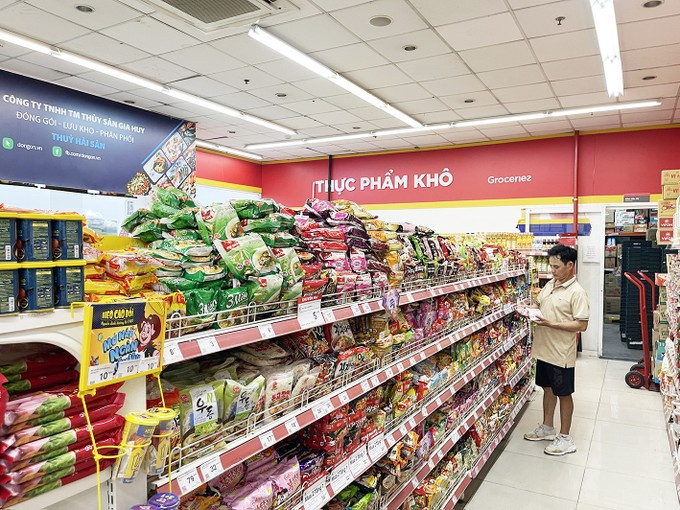
According to KPMG, one of the world's leaders in providing financial statement audits, in the 10 months of 2023, the total value of M&A transactions in Vietnam reached $4.414 billion with more than 260 deals and the average value of each deal was $54.5 million.
Thus, transaction value was down 23 percent compared to the beginning of 2023 and the number of deals was also lower than 2 years ago while in the first months of 2024, there was no outstanding M&A activity.
According to economic experts, this development is part of the global trend, due to political and macroeconomic instability, along with increasing global inflation.
Major economies tighten monetary policy, leading to higher interest rates and making M&A transactions more expensive.
However, there were still several big deals in 2023. Japan's Sumitomo Mitsui Banking Corporation (SMBC) agreed to pay $1.45 billion to acquire 15 percent of shares of Vietnam Prosperity Joint Stock Commercial Bank (VPBank) - the year’s largest deal.
Meanwhile in the field of real estate, ESR Group Limited - a Japanese multinational company - spent $450 million to acquire strategic shares of BW Industrial Development Joint Stock Company (BW Industrial), one of the enterprises' largest industrial and logistics industry in Vietnam.
A slightly lower value, but still quite impressive was the deal between Gamuda Land of Malaysia and Tam Luc Real Estate Group. The Malaysian group spent $316 million acquiring 100 percent of the shares of Tam Luc Real Estate Group. In the healthcare field, Thomson Medical Group of Singapore spent more than $380 million acquiring a controlling interest in French Viet Hospital.
It is impossible to escape the general spiral, but these deals show the endurance of the economy and the Government's determination to stabilize macroeconomics, which has partly strengthened the confidence of investors in the Southeast Asian country.
Moreover, most forecasts from international and domestic experts say that inflation in Vietnam will be controlled below 4 percent, GDP growth will be about 5.8 percent in 2024 and 6.9 percent in 2025 while public debt is below the ceiling of 60 percent of GDP.
Foreign investment (FDI) flows continue to flow strongly in the country which are basic advantage for M&A deals. According to Director Khanh Nguyen of Business Development Department of Gamuda Land Vietnam Joint Stock Company, real estate will be a potential industry because foreign investors often want to buy clean companies, own a single project and not be entangled with other projects in that company, Ms. Khanh Nguyen said.
Not only foreign investors but recently domestic businesses are interested in participating in M&A activities to complete their ecosystem. For example, Masan Group - through its direct subsidiary, The Sherpa Company Limited, bought 20 percent of the equity capital of Phuc Long Heritage Joint Stock Company for about VND352 billion ($15 million). After the first capital injection, Masan Group piloted a kiosk model selling coffee and milk tea inside the system of 50 VinMart+ stores (now renamed Winmart+).
Not long after, Masan bought an additional 31 percent of Phuc Long's shares, increasing its ownership to 51 percent; thereby, Masan has been taking control of this beverage brand. Immediately after that, Masan continued to buy additional 34 percent of Phuc Long's equity capital, increasing its ownership ratio to 85 percent.
Like every other field in the market economy, M&A activities are not entirely smooth as several M&A deals resulted in disputes.
More importantly, there have been concerns about the acquisition and encroachment of foreign businesses in some areas such as real estate or finance - banking.
For example, in the finance and banking industry, in the period from 2015 to now, there have been nearly a dozen deals of foreign investors buying controlling shares of Vietnamese financial companies with values ranging from several tens of millions of US dollars to more than a billion US dollars.
Typically, at the beginning of this year, Thailand's SCB Bank acquired 100 percent of Home Credit Vietnam Finance Company, worth $866 million.
However, lawyer Bui Van Thanh, an arbitrator of the Vietnam International Arbitration Center (VIAC), advised people not to be too concerned about foreign businesses using M&A deals to dominate the market because M&A activities of foreign investors through capital contribution, purchase of shares, capital contributions to Vietnamese economic organizations, or acquisition of assets of Vietnamese enterprises are governed by Vietnamese law according to the Investment Law 2023 (amending and supplementing a number of articles of the Investment Law 2020) and specialized laws.
On the State management, M&A activities can cause the loss of some current businesses of the merged enterprise, resulting in cuts in existing labor, and increasing social security costs. In regard to local firms which are mainly small and medium-sized enterprises, with limits in many aspects, they easily suffer losses related to the right to manage and operate the business, and the right to hold key positions in the business's board of directors after deals are done.
Therefore, businesses in general, and domestic businesses in particular, need to establish a good corporate governance system as well as improve the ability to fully and comprehensively understand and evaluate the legal status of the business and current legal regulations when carrying out M&A activities. If small and medium-sized enterprises do not have their own market research and legal teams, they should hire professional consulting companies and lawyers to recognize signs early and take measures to prevent a hostile takeover of the company.
Director Le Minh Phieu of LMP Lawyers and LMP Capital said that the agriculture, food and foodstuff, healthcare, technology, financial services, retail sector, industrial production and logistics will continue attracting potential investors.
SGGP